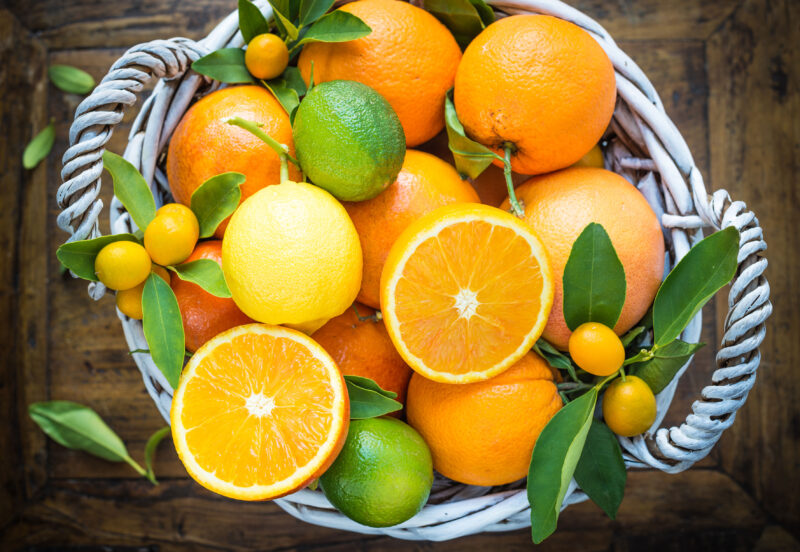Winters are a huge respite from the scorching heat. But it comes with a set of ailments. Sruthi Rajan talks to experts to list the common diseases one must take care of in this weather.
Common winter ailments such as the contagious cold and flu grow rapidly, as people tend to spend maximum time indoors because of the fall in the temperature outside. Some respiratory viruses stay for a long time, especially during the winter months. In addition, the paucity of sunlight and low temperatures in the cold months result in the spread of viral and bacterial infections.
“Even our body’s immunity tends to get weakened during the cold season, and therefore, it is more susceptible to attacks from viruses and bacteria,” says Dr Behram Pardiwala, consultant for internal medicines at Wockhardt Hospitals, Mumbai.
Prevention, the better option
For severe bacterial infections, some doctors may prescribe antibiotics. But specialists have woken up
to the dangers of becoming over-dependent on antibiotics for winter ailments, as they significantly weaken your immunity and may cause bacterial resistance. Also, antibiotics do not work against viruses, and its usage cannot prevent some of these ailments from turning into an epidemic.
While doctors recommend an annual vaccination to combat the flu, Dr Behram, also believes it is possible to prevent or cope with winter ailments by making major changes in one’s diet and lifestyle.
- Drink plenty of fluids to combat fluid loss from a runny nose.
- Avoid smoking or inhaling second-hand smoke and other stale air, as they can bother your nose, throat and lungs.
- Rest well, as it helps boost immunity and in preventing the onslaught of diseases.
- Cut down on fatty foods and alcoholic drinks, and exercise regularly to keep ailments at bay.
- Wash your hands, cover your mouth and nose while sneezing or coughing and avoid crowded
public places.
- Eat lots of fruits like oranges, berries, guavas, kiwis, apples, papayas, and pomegranates and water melons. Citrus fruits are storehouses of vitamin C, which helps fight colds and flu.
- Include green-leafy vegetables in your diet, in abundance. There should be a good intake of tomato, spinach and vegetable soups, as they help boost immunity.
- Also include milk and dairy products on a regular basis in your diet, as they help build immunity.
Common Winter Ailments
Common cold (or influenza): The most common of ailments during winters, influenza comes with symptoms like excessive sneezing, running nose, fatigue, feverand loss of appetite.
Those suffering from influenza may experience an increase in body temperature, followed by chills or shivering. Influenza can also become dangerous.
Flu: Another common winter ailment, flu, comes with high body temperature, weakness, fever and shivering, headaches, nausea and body pain.
Sore throat: This is common during winters, thanks to the dry air, and is usually caused by viral infections, leaving one’s throat sore and feeling parched. Viral sore throats usually accompany other ailments such as common cold or flu, sneezing and runny nose.
Cold sores: If you suffer from cold sores, you may get small, red patches on your skin, which can even be itchy and turn into blisters over a few days. While there’s no cure for cold sores, you can reduce its possibility by taking precautions during the season.
Raynaud’s phenomenon (or cold hand): Signalling poor blood circulation in the small blood vessels of the hands and feet, this common condition that occurs in cold weather leaves one’s fingers and toes with a distorted, unnatural colour, making it even painful. Medication can help relieve symptoms in severe cases.
Asthma: Winters are perhaps the worst for asthmatics, as cold air is the major reason for rise in asthma cases. Asthmatics normally experiencewheezing and shortness of breath.
Heart attacks: Heart attacks are a lot more common in winter than reported. The cold weather increases the blood pressure, putting more strain on the heart and making it difficult for the organ to maintain the body heat when it’s cold.

Cold Touch
Dr Ranju Chawla, of Dr Ranju Chawla’s Skin Clinic in Saket, New Delhi, recommends that we pay more attention to our skin, nail and hair-care during winters, considering skin and hair problems are a given when it comes to the cold. “Remember, humidity is low in winter, causing a decreased intake of water,” explains Dr Ranju. “Our skin gets dry, hair becomes frizzy and scalp starts getting flaky. The cold wind adds to the damage. The cold weather also activates allergies, rashes and common skin conditions like eczema and psoriasis, which the skin is prone to,” she elaborates.
Skin-care must-dos
- Moisturise daily—especially on the sensitive areas of the hands, feet, elbows and lips—immediately after bath as well as before bedtime; you may also add bathing oils into the bath water.
- Protect your nails with a coat of transparent nail polish.
- The winter sun can be harsh. If you develop sunburn despite regular sunblock usage, apply a mild, hydrocortisone cream for a day or two for immediate relief.
- A mild anti-dandruff shampoo and regular oiling before bath will keep your scalp dandruff-free and the hair moisturised.
- Avoid hot showers; stick to lukewarm water so that the moisture from skin and hair is not stripped off.
- Prevent windburns by covering your hair with a scarf and protect your eyes with sunglasses.
- Exfoliate and moisturise your feet regularly to prevent cracked heels; however, avoid alcohol-based cleansers, which can dry the skin.
- Avoid scented wet wipes.
- Reduce excessive shampooing to prevent excessive dryness of hair.
- Avoid self-medication and covering infections under your woollens.
Also remember to visit a skin-specialist if your limbs are cold and blue or red despite staying
well-covered; a rash that lasts more than 5–7 days requires medical attention too.

Cool Diet
A great way to pamper your skin in the winters is to follow a skin-friendly diet. “One need procure exotic foods from all over the world. Sticking to local produce is smarter,” says Dr Ranju. A diet rich in lycopene, omega-3 fatty acids, plant pigments like carotenoids and vitamins A, E and C is the key.Include a lot more green vegetables, red juices, yellow fruits, nuts like almonds, and flax seeds in your diet. Include seafoods, especially tuna, sardines and mackerel. A biotin supplement would do your nail, hair and skin loads of good.
The Bone of contention
People may have muscle pains, stiffness and pain in the knee, ankle, hand and other joints.
Dr Anup Khatri, orthopaedic surgeon at Global Hospital, Mumbai, warns that the cold air and damp weather during winters may lead to bone and joint flare-ups, especially in people who already have a bone-and-joint disease or are over 60 years of age.
Causes of pain
When the body tries to preserve the warm blood supply to the vital organs, it tends to circulate less blood to peripheral areas such as the skin, joints and muscles in order to prevent heat loss. The cold weather causes muscle spasm, which adds to joint inflexibility and pain. Low sunlight leads to vitamin D deficiency in body, which is essential for bone and muscle strength.
Preventing joint aches
Healthy diet
Make vitamins, especially vitamin K, a part of your diet. Load up vitamin C-rich fruits like oranges and tomatoes. Get your dietary dose of omega-3 fatty acids from salmon and nuts. Add vitamin-D supplements for bone strength and cartilage formation.
Work out well
It warms up the body, while helping you maintain body weight.Working out also improves flexibility and muscle strength.
Comfortable clothing Wear warm clothes to get relief from joint stiffness and pain.
Add layers to the clothing.
Protect your hands and feet from the chill, wearing warm gloves, socks and shoes.
However, if the pain in your joints is chronic or associated with swelling, consult an expert immediately.


